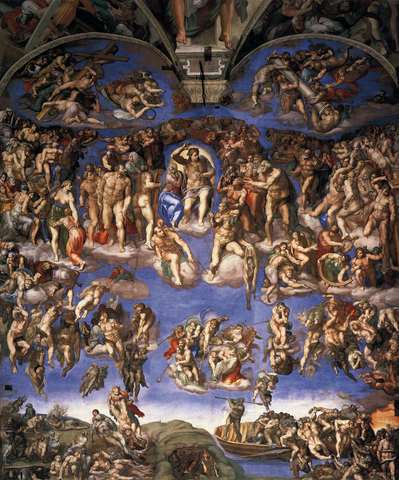The Commemoration of all the Faithful Departed -All Souls--follows the Solemnity of All Saints. The Church's remembrance of our deceased friends and loved dates back to Saint Isidore of Seville's Rule for Monks but it wasn't until the monks of the Abbey of Cluny under the leadership of Abbot Odilio, who in 998 ordered all the Cluniac houses to observe a day in which the dead were prayerfully remembered. By the 13th century the custom was extended to the entire Church in the West; the Churches in the East have a similar day depending on what ecclesiastical community we are talking about. The custom of singing the Dies Irae set the tone and theology of this observance; today one rarely hears the Dies Irae sung in parishes because it is considered a "downer" and thus completely neglecting what the hymn says; it seems, however, to be making a come-back (even the 1928 BCP included the Dies Irae post World War I) as an apt expression of grief rooted not in civil secularity but in theology reminding faithful that we neither make not sustain ourselves. This feast like all other liturgical feasts points to God and to his love and mercy more than to us and our to condition.

An excerpt of an oration of Saint Gregory of Nazianzus
"What is man that you should be mindful of him, mere mortal that you should care for him?" What is this new mystery confronting me? I am both small and great, both lowly and exalted, mortal and immortal, earthly and heavenly. I am to be buried with Christ and rise again with him, to become a co-heir with him, a son of God, and indeed God himself.
This is what the great mystery means for us; this is why God became man and became poor for our sake: it was to raise up our flesh, to recover the divine image in us, to re-create mankind, so that all of might become one in Christ who perfectly became in us everything that he is himself. So we are no longer to be "male and female, barbarian and Scythian, slave and free" -distinctions deriving from the flesh--but to bear within ourselves only the seal of God, by whom and for which we were created. We are to be so formed and molded by him that we are recognized as belonging to his one family.
If only we could be now what we hope to be, by the great kindness of our generous God! He asks so little and gives so much in this life and in the next, to those who love him sincerely. In a spirit of hope and out of love for God, let us then "bear and endure all things" and give thanks for everything that befalls us, since even reason can often recognize these things as weapons to win salvation. Meanwhile let us commend to God our own souls and the souls of those who, being more ready for it, have reached the place of rest before us although they walked the same road as we do now.
Lord and creator of all, and especially of your human creatures, you are the God and Father and rule of your children; you are the Lord of life and death; you are the guardian and benefactor of our souls. You fashion and transform all things in their due season through your creative Word, as you know to be best in your deep wisdom and providence. Receive this day those who have gone ahead of us in our journey from this life.
(Gregory of Nazianzus, Oration 7, 23-24; PG 35, cols 786-7; ET by ICEL)
V. From the gate of hell.
R. Deliver their souls, O Lord.
V. May they rest in peace.
R. Amen.
V. O Lord, hear my prayer.
R. And let my cry come unto Thee.
V. The Lord be with you.
R. And with your spirit.
Let us pray.
O God, Creator and Redeemer of all the faithful, grant to the souls of Thy servants and handmaids the remission of all their sins, that through our devout prayers they may obtain pardon which they have always desired. Who lives and reigns with God the Father in the unity of the Holy Spirit, God, world without end. Amen.
V. Eternal rest grant unto them, O Lord.
R. And let perpetual light shine upon them. Amen.


Leave a comment